試す 金 - 無料
Let Me Introduce You
Dig Into History Magazine for Kids and Teens
|April 2017
The Europeans marveled at the cleanliness and health of the people they encountered along the coast of South America.

The natives, unlike the Europeans, bathed frequently and experienced few illnesses. They adorned themselves with little more than paint, colorful feathers, and shell, stone, or bone ornaments. The women wore their hair long, while the men shaved the tops of their heads and faces. Everyone removed body hair, even eyebrows.
- A CLOSER LOOK
The men excelled at hunting, fishing, and warfare. They plied the coast and Amazon waterways in large canoes. They carried weapons, including heavy clubs, long spears, and bows and arrows. Some shot arrows great distances by lying on the ground and holding the bow with their feet; others used long blowguns to down prey from the high jungle canopy (see page 33, top). Those living along the Amazon River dipped their spear points in deadly poison.
The women grew crops and prepared food. Maize provided significant nourishment for those along the Amazon River, but most lowland South Americans survived on bitter manioc. The roots of this plant, deadly unless the prussic acid is extracted, were grated. The resulting pulp was then squeezed in a giant woven-palm tube, called a tipiti, to remove the juice. Once this step was completed, the pulp was toasted and eaten in a variety of dishes. The manioc they fermented became a mildly alcoholic beverage known as cauim, which was consumed in great quantities at ceremonial gatherings. Fermentation began only after women chewed and spat some of the pulp into large vats of manioc. It was their saliva that got the fermentation process underway.
- ALIKE—AND DIFFERENT
このストーリーは、Dig Into History Magazine for Kids and Teens の April 2017 版からのものです。
Magzter GOLD を購読すると、厳選された何千ものプレミアム記事や、10,000 以上の雑誌や新聞にアクセスできます。
すでに購読者ですか? サインイン
Dig Into History Magazine for Kids and Teens からのその他のストーリー
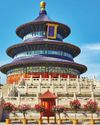
Dig Into History Magazine for Kids and Teens
Worshiping Heaven
For almost 500 years, emperors of the Ming and Qing dynasties offered sacrifices and prayers at the Temple of Heaven in Beijing.
3 mins
November/December 2016
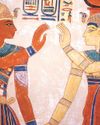
Dig Into History Magazine for Kids and Teens
Peace Reigns
The news spread throughout Egypt—a new pharaoh, Ramses III, now sat on the throne.
4 mins
September 2017
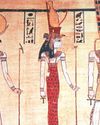
Dig Into History Magazine for Kids and Teens
Problems To The East
Ramses III, the second king of Egypt’s 20th Dynasty, is viewed as Egypt’s last truly great pharaoh.
3 mins
September 2017
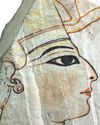
Dig Into History Magazine for Kids and Teens
The Successors
Following the death of Ramses III, eight pharaohs, all named Ramses, ruled Egypt.
1 mins
September 2017
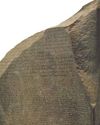
Dig Into History Magazine for Kids and Teens
Stone Code
Hundreds of ships, led by the French general Napoleon Bonaparte, sailed from France in May 1798 on a secret mission.
1 mins
September 2017

Dig Into History Magazine for Kids and Teens
Up & Away!
Eclipse observers often face unexpected difficulties, sometimes on their way to their chosen sites and sometimes at a site itself.
2 mins
January 2017

Dig Into History Magazine for Kids and Teens
Edison's Eclipse Adventure
Thomas Edison (1847–1931) is the best-known inventor in American history.
3 mins
January 2017
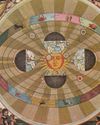
Dig Into History Magazine for Kids and Teens
Digging Up Copernicus
The scientist “who made the Earth a planet” is how the Harvard-Smithsonian astronomer Owen Gingerich refers to Nicolaus Copernicus (1473–1543). Copernicus’ path breaking book, On the Revolutions of the Heavenly Spheres,challenged the centuries-old belief that the Earth stood stationary at the center of the cosmos.
2 mins
January 2017
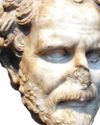
Dig Into History Magazine for Kids and Teens
Demosthenes & Cicero
Even today, more than 2,000 years after they lived, Demosthenes and Cicero are still considered two of history’s most outstanding orators.
4 mins
May/June 2017
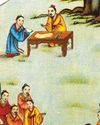
Dig Into History Magazine for Kids and Teens
Confucius & Socrates
Some teachers are so inspirational that their influence lives on long after they die.
3 mins
May/June 2017
Translate
Change font size

